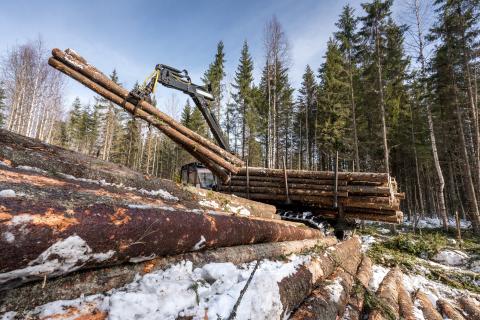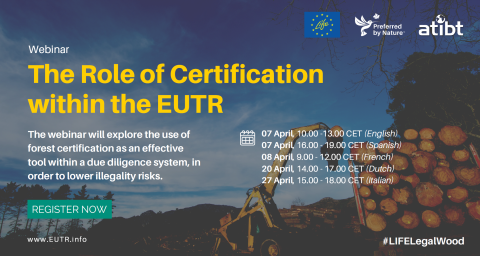WWF: The EU drags its feet over legality measures
In its “Government Barometer 2012”, WWF criticises EU member states for being too reluctant when it comes to on-the-ground actions that they are expected to carry out to halt the flow of illegal timber into the EU.
According to WWF, national governments are making inadequate efforts to address illegal logging through public procurement, FLEGT and the EU Timber Regulation.
The European Union has established several instruments to halt the flow of illegal timber products into the EU, including the Forest Law Enforcement, Governance and Trade (FLEGT) programme and the EU Timber Regulation (EUTR). The impact of these instruments relies to a great extent on the cooperation of member states, which is why WWF has conducted a survey to gauge the state of implementation across the EU Member States. The WWF Government Barometer 2012 reveals that gaps remain between policy and practice.
Will EU Timber Regulation sanctions be effective?
WWF has found that nine countries still need to put the necessary implementation measures in place in preparation for the EU Timber Regulation which is coming into force in 2013. The rest are progressing to varying degrees.
EU member states are criticised particularly for not putting adequate penalties and sanctions under the EU Timber Regulation in place.
According to WWF, only Germany, Luxembourg and the Netherlands are currently considering “effective, proportionate and dissuasive penalties and sanctions”.
In the Netherlands – an important point of entry for tropical timber into the EU - the penalties under consideration include imprisonment of up to six years in case of malintent; if the violation is not deliberate, proposed penalties include imprisonment of up to one year or fines of € 76,000 for companies and € 19,000 for individuals.
Untapped potential of public timber procurement
WWF finds it “extremely disappointing” that no EU country has made a firm commitment to legal and sustainable timber product sourcing across all public institutions.
The organisation highlights that “the public sector in every EU country is a huge customer for timber and wood products,” so public institutions possess the potential to drive the market for sustainable timber forward. WWF points out that “as many as 11 countries still have no procurement policy in place at all and only seven are making good progress.”
Half-hearted support for FLEGT
When will we start to see FLEGT-licensed timber in the marketplace? The FLEGT Program was launched in 2003 in order to support legal timber production in tropical countries. The introduction of a licensing system is a key part of the approach; thus far FLEGT timber has yet to come onto the marketplace.
This is partly due to slow progress within the bilateral Voluntary Partnership Agreements (VPAs) signed between EU and the producer countries. WWF finds that with a few exceptions, the EU member states are largely missing out on their potential to create a stronger push for better forest governance by engaging directly on the VPA processes. WWF also points out that many EU member states have not implemented the FLEGT regulation. According to WWF, “[….] only four countries – Belgium, Cyprus, Germany and Sweden – are ready to receive FLEGT-licensed timber and have effective, proportionate and dissuasive penalties and sanctions in place.”
WWF also points out that many EU member states have not implemented the FLEGT regulation. According to WWF, “[….] only four countries – Belgium, Cyprus, Germany and Sweden – are ready to receive FLEGT-licensed timber and have effective, proportionate and dissuasive penalties and sanctions in place.”
Will the legal framework of EU countries pose the last barrier to FLEGT timber once the first shipments are ready?



